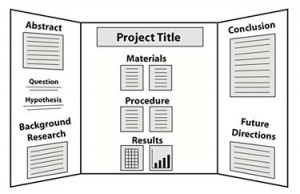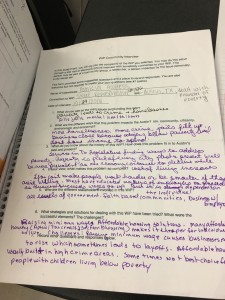 In the process of the brainstorming activity, many ideas were shared and multiple insights were discovered. The stakeholders that were interviewed by my group members were all from different backgrounds. The new insights we gained were from the specific stakeholders that were interviewed. The stakeholders included: a governmental legislative leader, Patricia Harless, who gave a perspective from the government’s role, an individual with knowledge about food security, the seu theater director, who gave background from a food insecure perspective, an expert in financial educational services, a financial aid advisor from St. Edward’s University, who highlighted the steps in achieving a good education and the struggles that some individuals face, and an expert on the housing department for those in poverty in the city of Austin, from the HAOCA, who explained what it is like for people in poverty to find housing, and finally a member from the CAN Association, Raul Alvarez, who explained the problem of crime that is provoked by poverty. The one major question that emerged from our interviews was: how can the individual in poverty be influenced in order for them to want to get out from below the poverty line? Overall, my current thoughts about the problem of poverty is that it is a multi-layer issue that takes time to solve, but I believe that our economy needs to be dealt with first, alongside with helping those already in poverty, in order to kick start a change. Then the photo above is an ides of how we will layout our final project, with extra explanation on the “brainstorming worksheet”.
In the process of the brainstorming activity, many ideas were shared and multiple insights were discovered. The stakeholders that were interviewed by my group members were all from different backgrounds. The new insights we gained were from the specific stakeholders that were interviewed. The stakeholders included: a governmental legislative leader, Patricia Harless, who gave a perspective from the government’s role, an individual with knowledge about food security, the seu theater director, who gave background from a food insecure perspective, an expert in financial educational services, a financial aid advisor from St. Edward’s University, who highlighted the steps in achieving a good education and the struggles that some individuals face, and an expert on the housing department for those in poverty in the city of Austin, from the HAOCA, who explained what it is like for people in poverty to find housing, and finally a member from the CAN Association, Raul Alvarez, who explained the problem of crime that is provoked by poverty. The one major question that emerged from our interviews was: how can the individual in poverty be influenced in order for them to want to get out from below the poverty line? Overall, my current thoughts about the problem of poverty is that it is a multi-layer issue that takes time to solve, but I believe that our economy needs to be dealt with first, alongside with helping those already in poverty, in order to kick start a change. Then the photo above is an ides of how we will layout our final project, with extra explanation on the “brainstorming worksheet”.
Month: November 2016
WiP Project Assignment 3: Step B – Blog/Reflection
 At the start of this project it was clear what path my group and I were going to take. We decided to focus on poverty as our main wicked problem, but we also chose to add in the other influential parts that impact poverty. With our process of thinking about who we would interview we selected the parts of government, food security, education, housing, and crime. All of these influential parts impact poverty. We found people to interview in each of these sections, and we believe that by having these different sections a larger point of view can be seen from different angles. I chose to take on the government part in this larger working piece of poverty. I interviewed State Representative #126, Patricia Harless. From speaking with her I gathered some new insights on about poverty with what she explained to me. I now understand that this is a major issue because it has always been a prevailing issue. With the continuous decline of the economy and poorer education, poverty increases. Also, she pointed out something very important. She said that in her line of work she “cannot make people work harder or be smarter if they are not willing to,” which really illuminates a major factor of poverty. From this interview, poverty begs the questions of: do we need to first fix the economy in order to tackle the problem of poverty? With those among the prisons, whenever they are released, how can they be helped so poverty does not increase? From interviewing Patricia Harless, my feeling on the problem of poverty still remains that it is a wicked problem. It is a problem with many influential parts, but a place to start the mending, after conversing with Harless, is by helping those who are currently impoverished. We must provide better and improved education, economic, employment systems but this will only start with the reformation of current systems, which is easy to be said but harder to actually implement.
At the start of this project it was clear what path my group and I were going to take. We decided to focus on poverty as our main wicked problem, but we also chose to add in the other influential parts that impact poverty. With our process of thinking about who we would interview we selected the parts of government, food security, education, housing, and crime. All of these influential parts impact poverty. We found people to interview in each of these sections, and we believe that by having these different sections a larger point of view can be seen from different angles. I chose to take on the government part in this larger working piece of poverty. I interviewed State Representative #126, Patricia Harless. From speaking with her I gathered some new insights on about poverty with what she explained to me. I now understand that this is a major issue because it has always been a prevailing issue. With the continuous decline of the economy and poorer education, poverty increases. Also, she pointed out something very important. She said that in her line of work she “cannot make people work harder or be smarter if they are not willing to,” which really illuminates a major factor of poverty. From this interview, poverty begs the questions of: do we need to first fix the economy in order to tackle the problem of poverty? With those among the prisons, whenever they are released, how can they be helped so poverty does not increase? From interviewing Patricia Harless, my feeling on the problem of poverty still remains that it is a wicked problem. It is a problem with many influential parts, but a place to start the mending, after conversing with Harless, is by helping those who are currently impoverished. We must provide better and improved education, economic, employment systems but this will only start with the reformation of current systems, which is easy to be said but harder to actually implement.